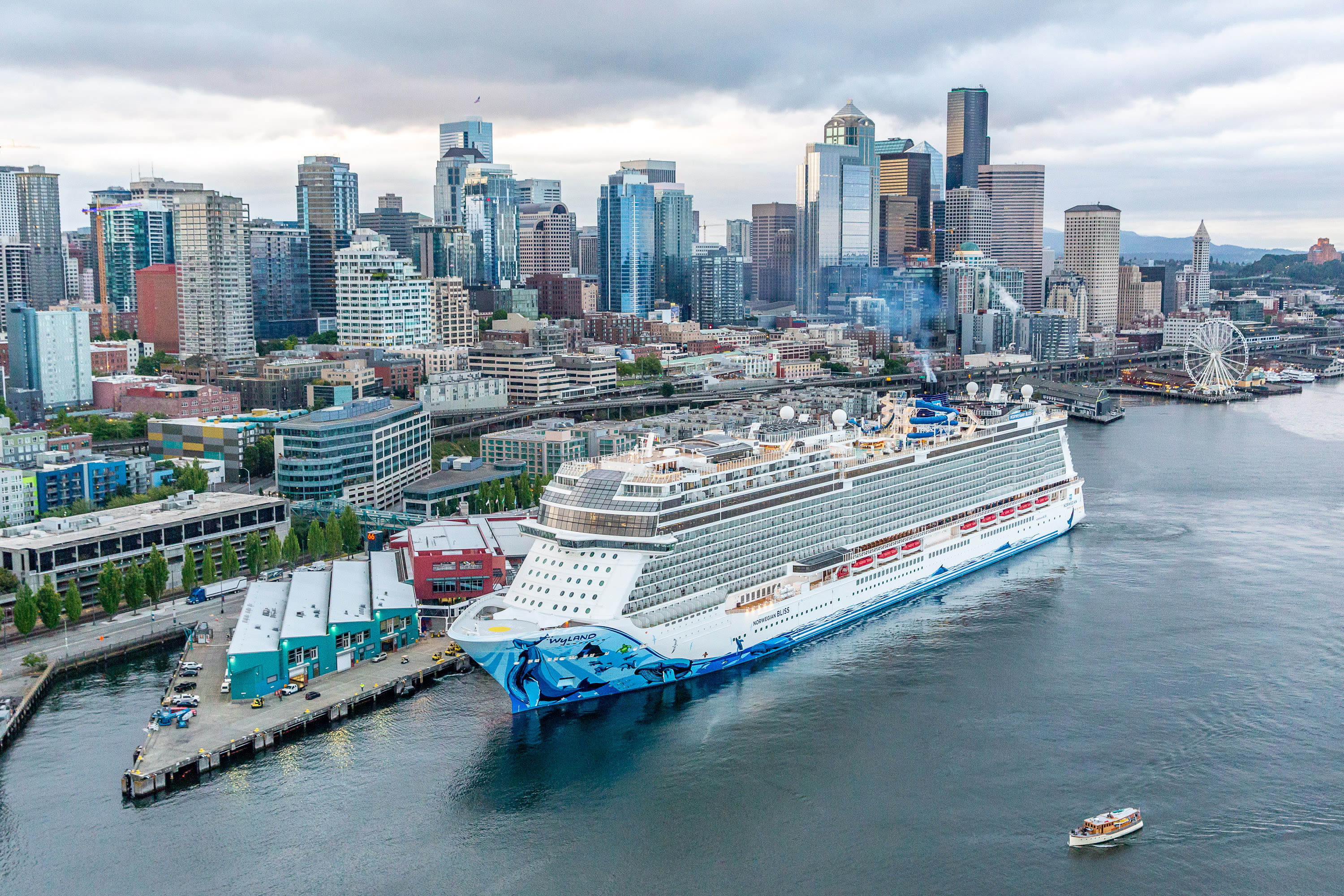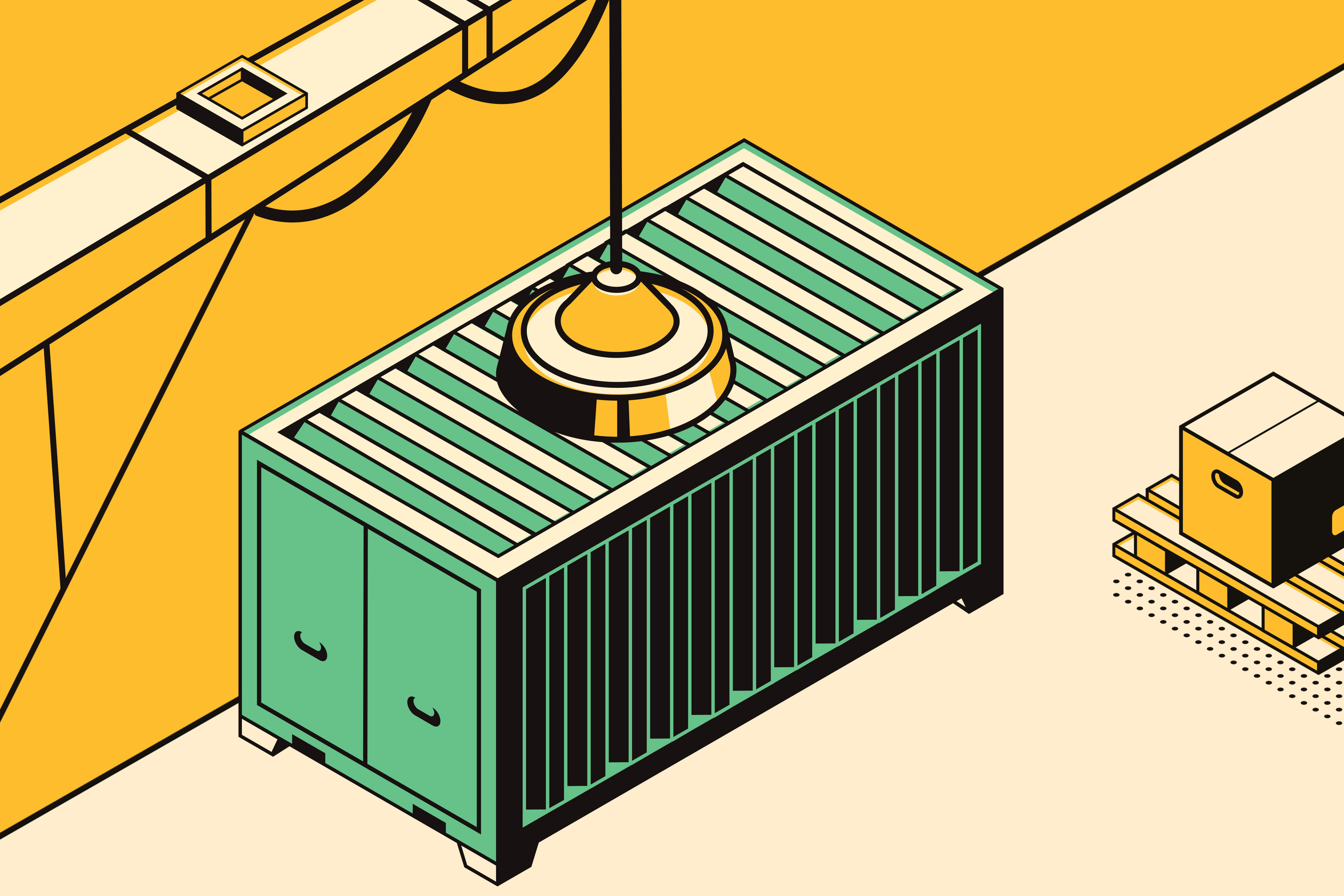On Other Blogs
On Other Blogs Today: Social Engineering, Job Numbers, and More
1. Arena supporters say a pair of months-old emails from Port of Seattle officials, uncovered by KING 5
, demonstrates that the Port actually believes (contrary to its current position) that trucks could operate just fine alongside a new arena.
The first email raises several concerns about the proposed arena location but says it has solid transportation infrastructure; the second implies that NBA games at night would have minimal impact on Port operations because the terminal now closes at 4:20. The Port has argued that its ambitious expansion plans will mean later operating hours in the future.
2. The New Yorker 's James Surowiecki turns the usual "social engineering" argument---that government actions, like increasing transit funding, constitute "nanny state" social engineering---on its head.
Surowiecki isn't defending bike lanes and transit and density, the top priorities of our supposed local social engineers. But we thought his argument was instructive.
Writing about the proposed ban on large sodas in New York, Surowiecki points out that people happily acquiesce to corporate social engineering all the time. The reason a default "single serving" soda is twice the size now that it was in the '70s is that the soda companies decided it would be---and so we all drink more soda.
What we "want" depends on how our choices are framed: So it goes with soda, and so it goes, we would add, with our decision to drive or take the bus.

3. The Seattle Bubble has the city's latest job numbers , and it's good news: Employment in the area is doing "much better" than the state or nation as a whole, with unemployment of 7.2 percent (compared to 8.3 percent for the state).
4. A proposed Seattle bike-sharing program could put 500 bikes in the downtown area, and would cost a new nonprofit bike-sharing company $3.7 million to launch, plus about $1.4 million a year, the Seattle Times reports . Bikes would have seven gears and cost anywhere from $5 a day to perhaps $30 a month. But: Helmets from machines? Ew.
The first email raises several concerns about the proposed arena location but says it has solid transportation infrastructure; the second implies that NBA games at night would have minimal impact on Port operations because the terminal now closes at 4:20. The Port has argued that its ambitious expansion plans will mean later operating hours in the future.
2. The New Yorker 's James Surowiecki turns the usual "social engineering" argument---that government actions, like increasing transit funding, constitute "nanny state" social engineering---on its head.
Surowiecki isn't defending bike lanes and transit and density, the top priorities of our supposed local social engineers. But we thought his argument was instructive.
Writing about the proposed ban on large sodas in New York, Surowiecki points out that people happily acquiesce to corporate social engineering all the time. The reason a default "single serving" soda is twice the size now that it was in the '70s is that the soda companies decided it would be---and so we all drink more soda.
What we "want" depends on how our choices are framed: So it goes with soda, and so it goes, we would add, with our decision to drive or take the bus.

3. The Seattle Bubble has the city's latest job numbers , and it's good news: Employment in the area is doing "much better" than the state or nation as a whole, with unemployment of 7.2 percent (compared to 8.3 percent for the state).
4. A proposed Seattle bike-sharing program could put 500 bikes in the downtown area, and would cost a new nonprofit bike-sharing company $3.7 million to launch, plus about $1.4 million a year, the Seattle Times reports . Bikes would have seven gears and cost anywhere from $5 a day to perhaps $30 a month. But: Helmets from machines? Ew.
Filed under
Share
Show Comments



